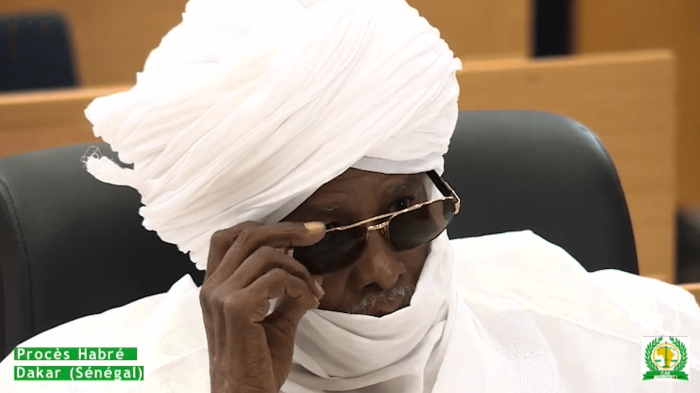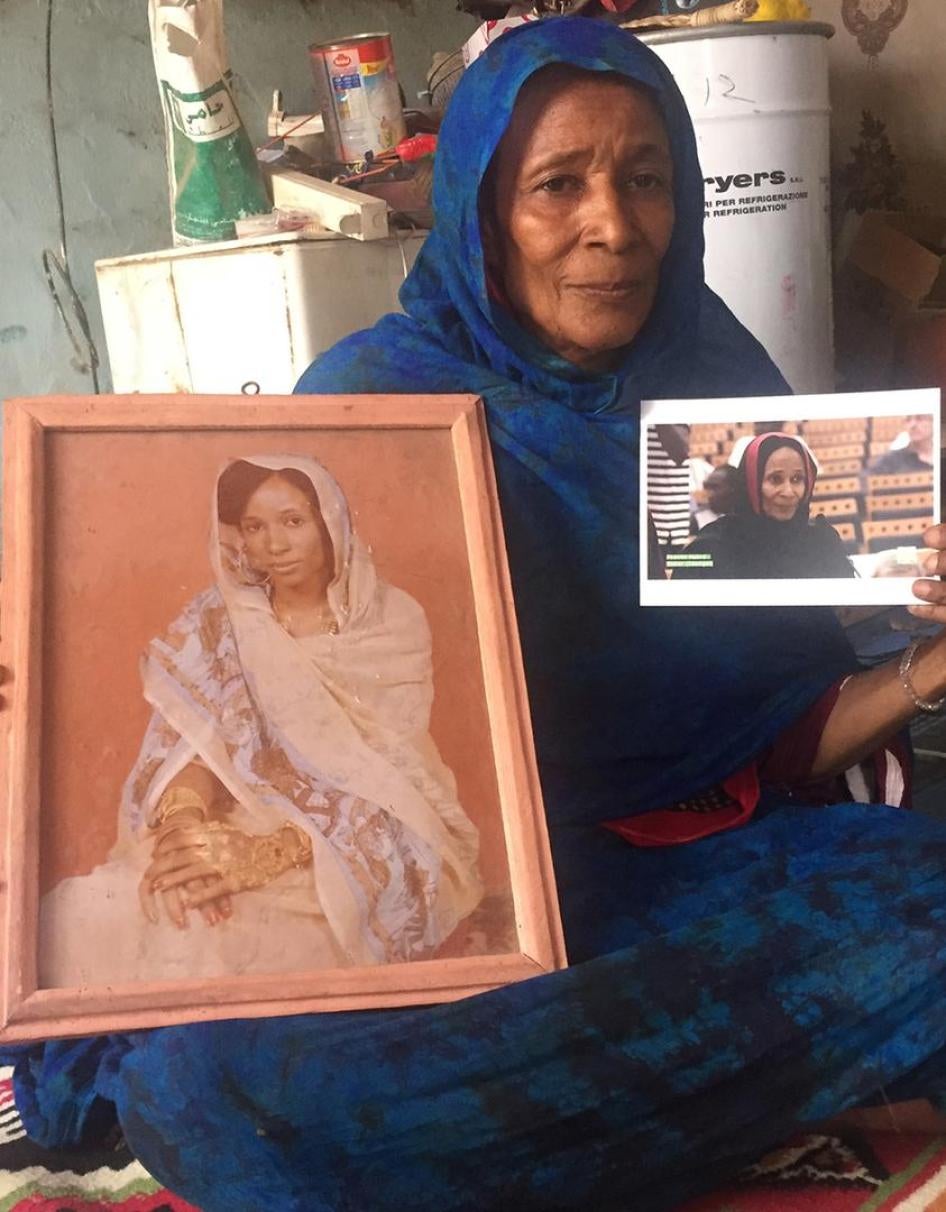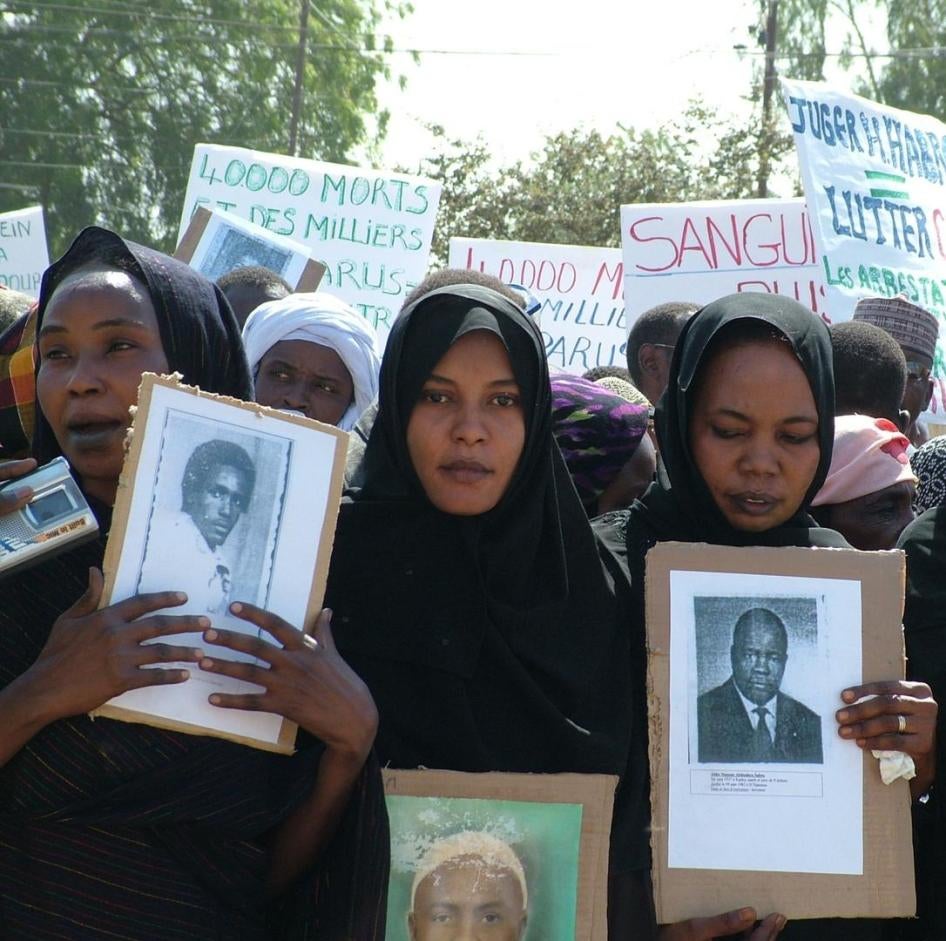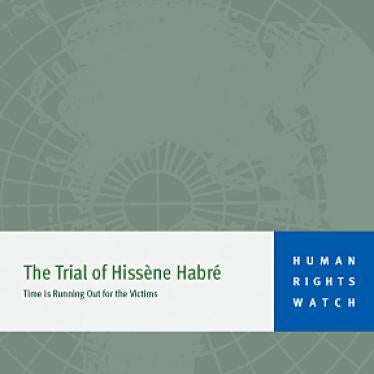“Never before had victims’ voices been so dominant”, declared journalist Thierry Cruvellier, who’s spent two decades observing international war crimes prosecutions, as the trial of Chad’s former dictator Hissene Habré reached it dramatic conclusion two years ago today. Habré, once one of Africa’s most feared leaders, had just been convicted of war crimes, crimes against humanity, and torture. He was led away to begin a life sentence.
This was a hugely significant trial for all of Africa – the first time that an African dictator had been tried before the national courts of another country on the continent. The New York Times pointed out: “Many African countries have endured abusive dictators, warlords and large-scale bloodshed that has gone unpunished. But the Habré case has stood out because of determined victims.”
As I argue in my new book on Habré’s trial, it could never have happened without the fearless victims’ bid to overcome their experiences, and their belief that justice would one day be done.
Habré’s victims had once been ridiculed for their refusal to give up hope that their former president – convicted of setting up a network of secret service agents and prisons in the 1980s which killed and tortured thousands of Chadians – could ever be brought to justice. Many observers had also openly dismissed the idea of a trial so long after Habré had been chased from power. But in fact the victims’ dogged campaign eventually became central to the success of Habré’s trial, which was held in Senegal before an Extraordinary African Chambers (EAC).
Victims began their quest for justice in the years after Habré was toppled by Chad’s current President Idriss Deby in 1990. The work started with Souleymane Guengueng, a mild-mannered former civil servant who had himself been a detainee, who collected some 800 testimonies from victims in the early 1990s. He eventually shared these with Human Rights Watch, which led to a remarkable long-running campaign for justice. What had seemed hopeless as Habré passed the 1990s in comfortable exile in Senegal, slowly began to take shape and saw widows and former detainees from Habré’s secret detention centers work together to ensure the stories of brutality from 1980s Chad reached a wider audience. After failed attempts to prosecute Habré in Senegal, Chad, and Belgium, a significant breakthrough came in 2012 with the election of Macky Sall as the new Senegalese president. The EAC was finally set up in 2013, and the countdown to a longed-for date in court began.
The voices of the victims came into their own during the pre-trial phase, when investigating judges and Chief Prosecutor Mbacké Fall travelled to Chad to carry out four fact-finding missions. During that time, thousands of people turned up and queued for hours in the hot sun to tell their terrible stories. Tales emerged of horrendous neglect and torture in secret service prisons, inhumane treatment of prisoners, massacres in villages, night-time disappearances, rapes, and killings.
A number of these victims then travelled to Senegal’s capital, Dakar, to participate in the 2015 trial. The EAC’s approach put victims at center stage, and they were allowed to have their views represented in court by Chadian lawyers. After the trial, many victims told me they were extremely proud to have taken part and had their suffering recognized.
Some of the most significant moments in the trial involved the cases of women who had been raped and used as sex slaves by Habré’s army and secret police. Many of these women had not revealed the full scale of what had happened to them in the pre-trial hearings, but appearing before the court in Dakar seemed to embolden them to finally tell their stories. As she sat just metres away from him in the courtroom, one woman, Khadidja Zidane, unexpectedly accused Habré himself of having raped her in custody almost three decades ago. The multiple rape revelations, from Khadidja and other women, were so profoundly shocking that the court tried to retroactively amend the original charges to include crimes of sexual violence. This was later rejected on appeal, although the court was able to convict Habré of rape and sexual violence as a crime against humanity, a victory which campaigners have hailed as “extraordinary”.
The victims’ campaign has not been without its problems. A judge ordered compensation of US$154 million to be shared between more than 7,000 of Habré’s victims, but although a fund has now been set up, it has attracted few contributions. The EAC was only able to recover about $1 million in stolen assets from Habré’s personal accounts, and Chad’s current government has yet to pay a similar amount ordered by a N’Djamena court in 2015. At the same time, the EAC was unable to secure the extradition of five co-accused security service agents who were thought to have been responsible for daily acts of torture, something that continues to frustrate many of the victims.
Despite these setbacks, nothing can detract from the success achieved by those whose lives were turned upside down by Hissene Habré’s crimes. Although some victims sadly died before they saw justice, for those who made it to the end of that remarkable journey, the feeling of vindication was enormous. “To see the person who hurt me so much in court today has changed everything,” Clement Abaifouta, president of Habré’s victims’ association told me outside the Dakar courtroom after Habré was found guilty. “I am in the sun and he is in the shade.”
Celeste is a former BBC correspondent in Chad and author of a new book, “The Trial of Hissene Habré: How The People of Chad Brought A Tyrant To Justice.” Follow her on Twitter @ChadCeleste











